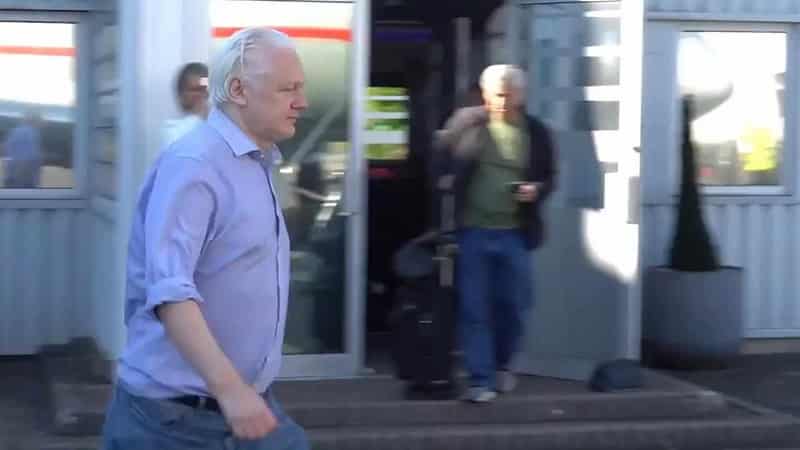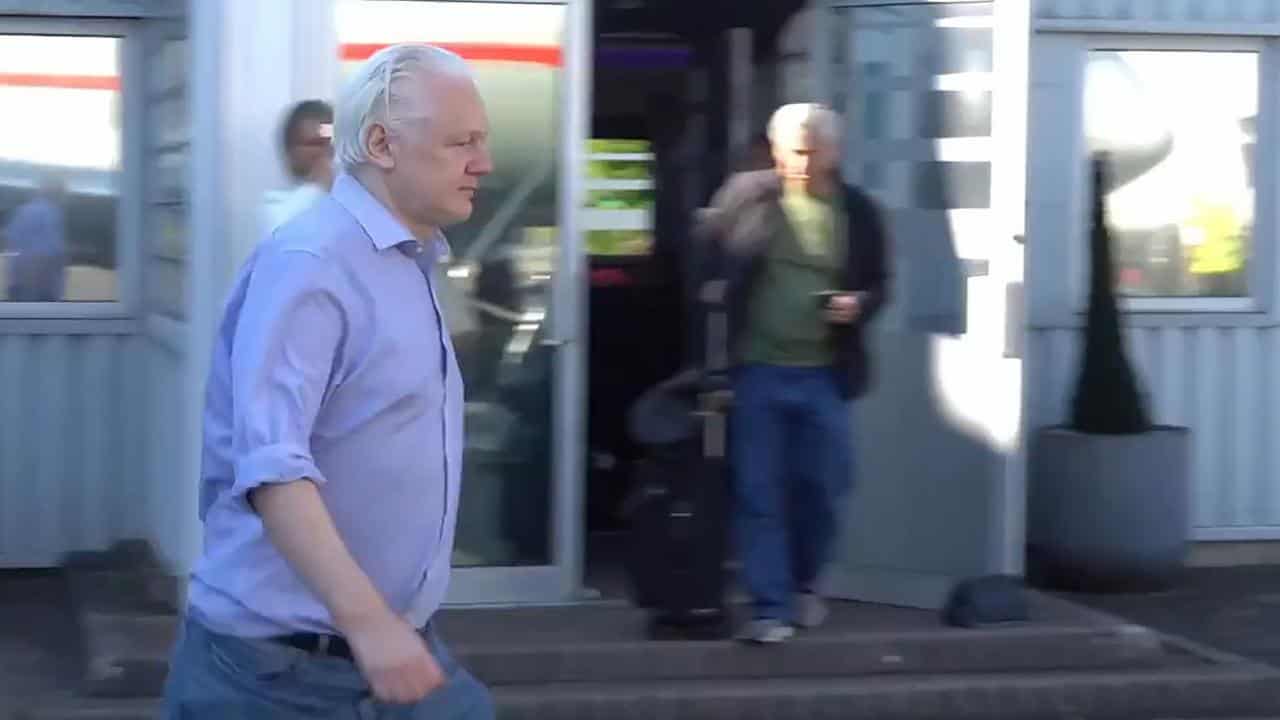
WikiLeaks founder Julian Assange is due to plead guilty to violating US espionage law in a deal that will set him free after a 14-year British legal odyssey and allow his return home to Australia.
Assange, 52, has agreed to plead guilty to a single criminal count of conspiring to obtain and disclose classified US national defence documents, according to filings in the US District Court for the Northern Mariana Islands.
The deal marks the end of a legal saga that has seen Assange spend more than five years in a British high-security jail and seven holed up in the Ecuadorian embassy in London as he fought accusations of sex crimes in Sweden and battled extradition to the US, where he faced 18 criminal charges.
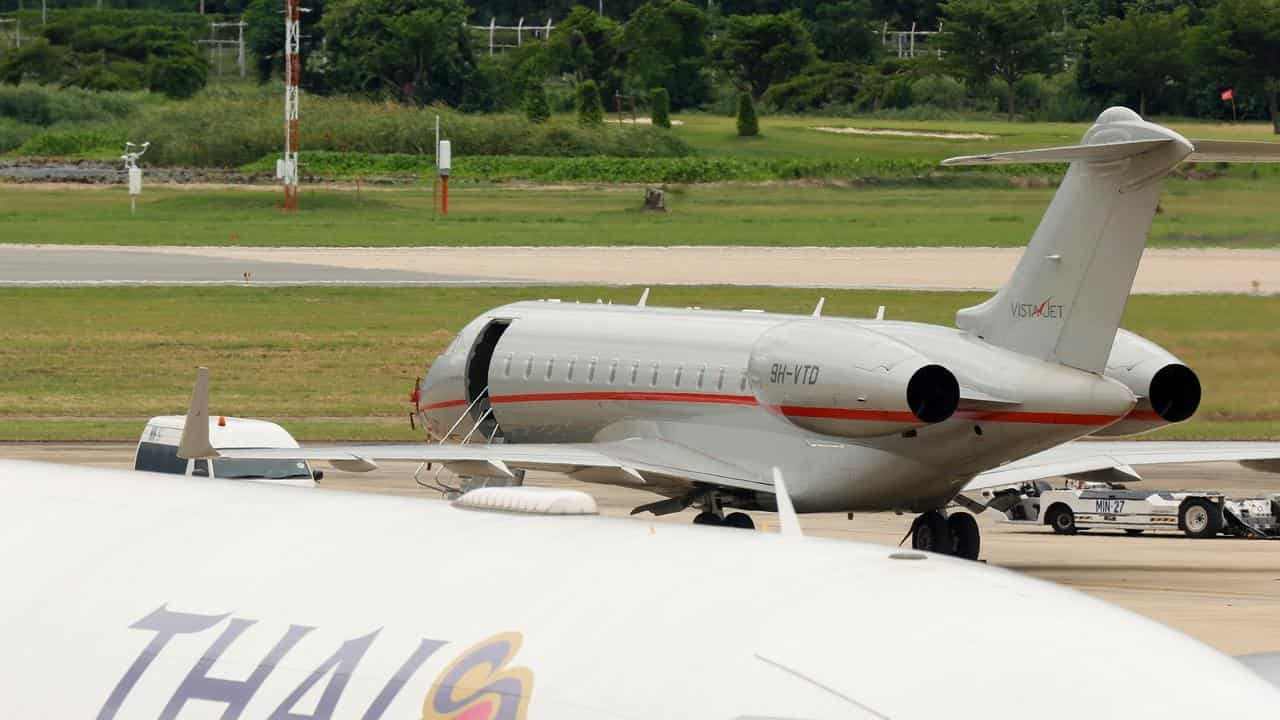
The US government viewed him as a reckless villain who had endangered the lives of agents through WikiLeaks' mass release of secret US documents - the largest security breaches of their kind in US military history.
But to free press advocates and his supporters, which included world leaders, celebrities and some prominent journalists, he is a hero for exposing wrongdoing and alleged war crimes, and was persecuted for embarrassing the US authorities.
On Wednesday, Assange is due to be sentenced to 62 months of time already served at a hearing in Saipan in the Northern Mariana Islands, at 9am on Wednesday, local time and AEST.
The US Pacific territory was chosen due to Assange's opposition to travelling to the mainland US and for its proximity to Australia, prosecutors said.
Australian-born Assange left Belmarsh maximum-security jail early on Monday before being bailed by the High Court and boarding a flight, his wife Stella Assange said.
He was currently on a stopover in Bangkok, she said.
"I feel elated," Stella, who flew to Australia from London on Sunday with the couple's two children, told Reuters.
"I also feel worried ... Until it's fully signed off, I worry, but it looks like we've got there. I'll really believe it when I have him in front of me and I can take him, and hug him, and then it will be real."
A video posted on X by WikiLeaks showed Assange signing a document before boarding a private jet.
After the hearing in Saipan, Assange would fly to Canberra where he would arrive on Wednesday, his wife said.
He recently won permission to appeal against the approval of his US extradition and the case was due to be heard at London's High Court in July, a factor Stella Assange said helped galvanise talks over a deal.
WikiLeaks came to prominence in 2010 after it released hundreds of thousands of classified US military documents on Washington's wars in Afghanistan and Iraq along with swathes of diplomatic cables.
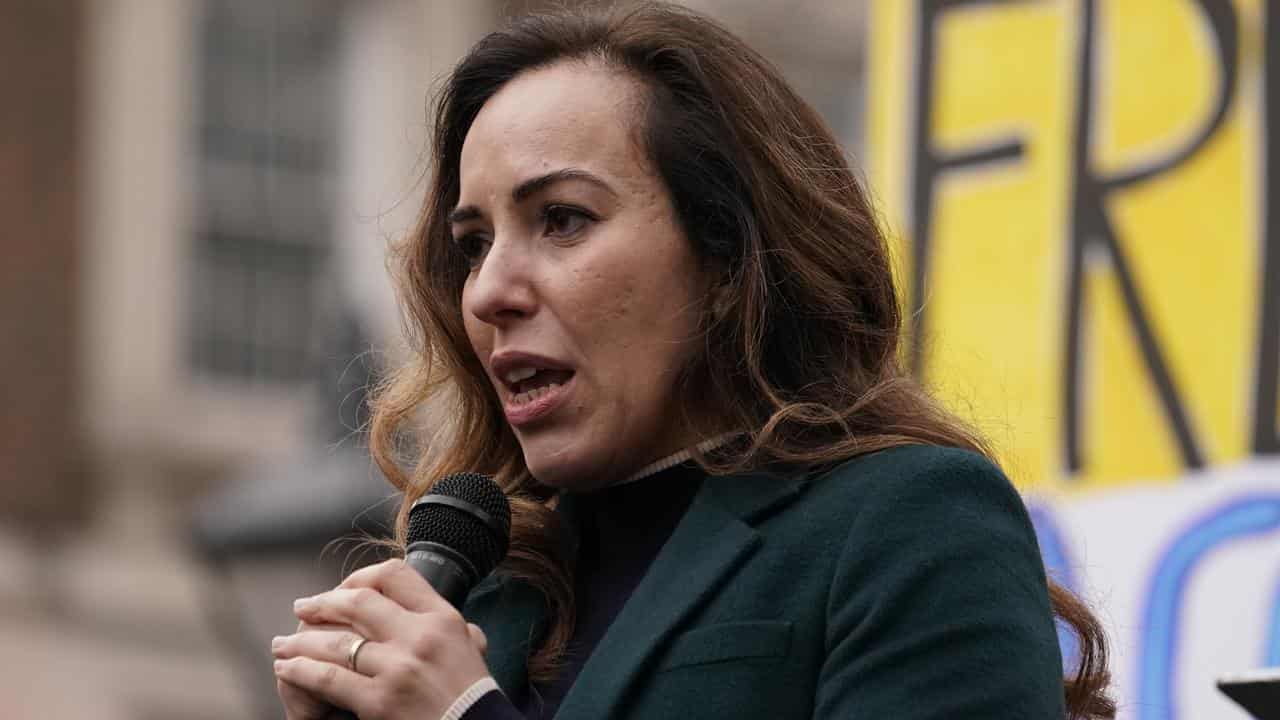
The trove of more than 700,000 documents included diplomatic cables and battlefield accounts such as a 2007 video of a US Apache helicopter firing at suspected insurgents in Iraq, killing a dozen people.
The charges against Assange sparked outrage among his supporters who have long argued that Assange as the publisher of WikiLeaks should not face charges typically used against government employees who steal or leak information.
Many press freedom advocates have argued that criminally charging Assange represents a threat to free speech and journalism.
Stella Assange said the US government should have dropped the case against her husband altogether.
"We will be seeking a pardon, obviously, but the fact that there is a guilty plea, under the Espionage Act, in relation to obtaining and disclosing national defence information is obviously a very serious concern for journalists," she said.
Assange was first arrested in Britain in 2010 on a European arrest warrant after Swedish authorities said they wanted to question him over sex-crime allegations that were later dropped.
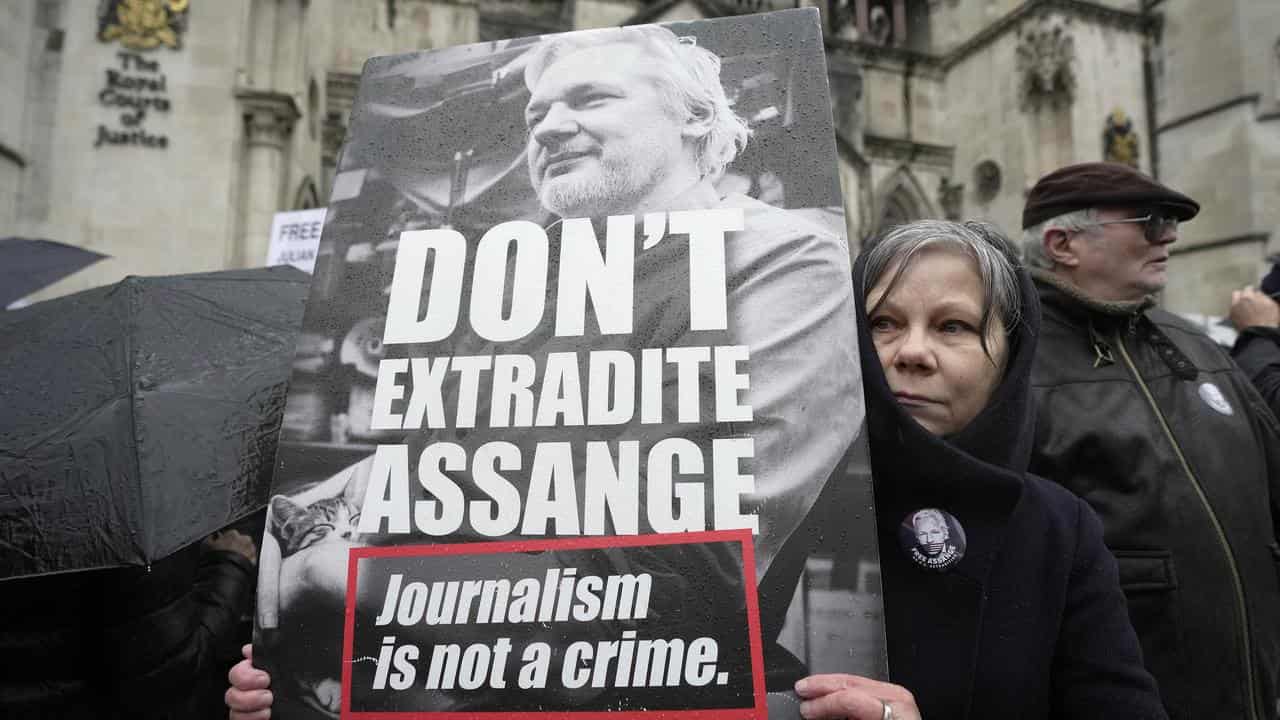
He fled to Ecuador's embassy, where he remained for seven years, to avoid extradition to Sweden.
He was dragged out of the embassy in 2019, jailed for skipping bail and has been in Belmarsh ever since, latterly fighting extradition to the United States.
Assange's father John Shipton said his son's release from prison lifted a "huge burden" from his family.
"I never gave up hope, never collapsed into despair that this day would arrive. I am absolutely elated - it is as though a huge burden has been lifted," he told PA from Australia.
Assange's brother Gabriel Shipton told Reuters from France that for "millions of people who have been advocating for Julian, it is almost time for them to have a drink and a celebration".
While in Belmarsh Assange married his partner Stella, with whom he had two children while he was stuck in the Ecuadorian embassy.
Agencies
